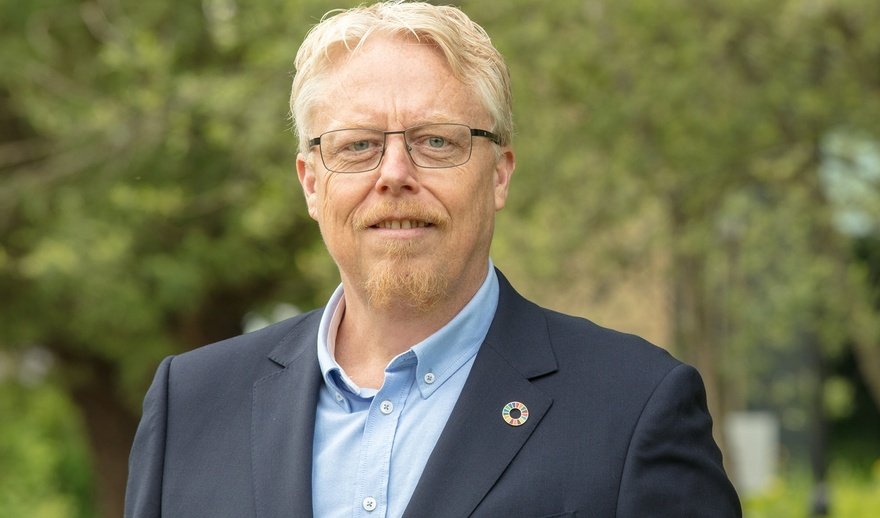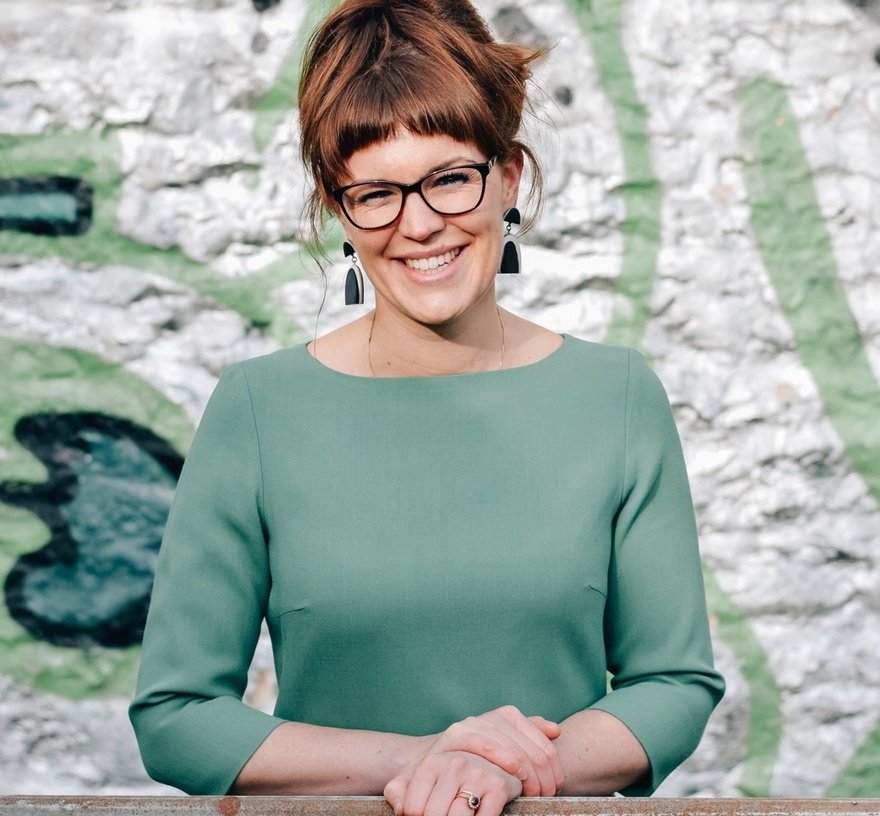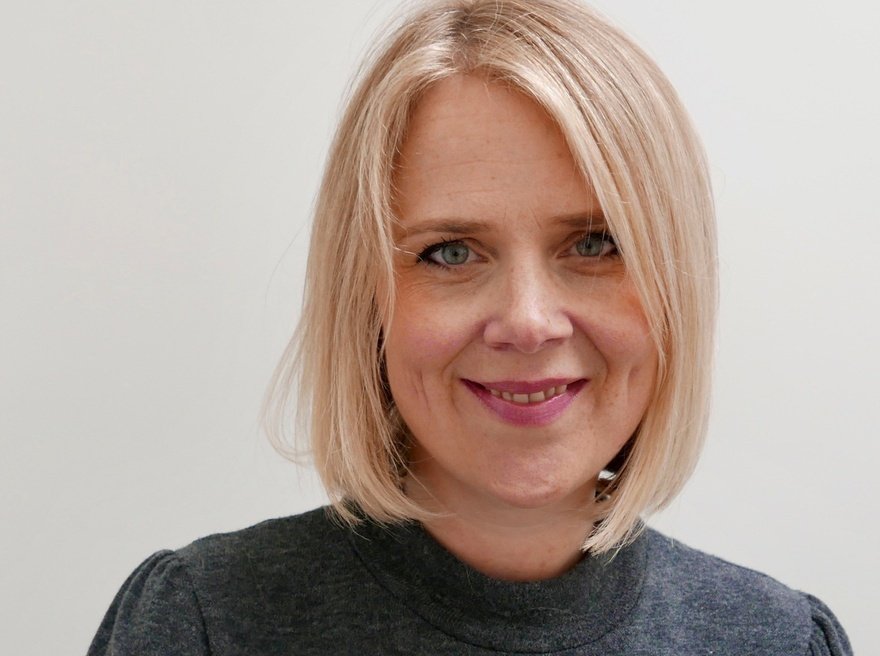Pressure is increasing on businesses to take action on their carbon emissions and sustainability, but you don't have to invest thousands. Katherine Price talks to operators who have discovered that often changing how people think results in the biggest changes
Whether your business is already well on its zero carbon journey or decarbonisation feels like yet another concern to add to the already overwhelming list for a hospitality operator with limited resources, it can't be ignored that sustainability has ramped up everyone's agenda over the last year.
With the UK hosting the UN Climate Change Conference of the Parties (COP26) in Glasgow later this month and committed to bringing all greenhouse gas emissions to net zero by 2050, it's likely the government will start looking at mandating businesses to reduce their contributions to reach this target. Food systems are estimated to be responsible for a third of greenhouse gas emissions and with the tourism sector accounting for around 8% (hotels around 1%), the hospitality industry could become a prime target for legislation.
But don't feel overwhelmed – there are plenty of resources to help you reduce your carbon output, and many don't require significant financial outlay and could even save you money.
You're not alone
Mike Hanson, director of sustainable business at Westbury Street Holdings, parent company of brands such as Benugo, BaxterStorey and Searcys, is a member of the Zero Carbon Forum, a non-profit group of hospitality businesses collaborating to drive sustainable change. Environmental crisis expert Mike Berners-Lee is a director and the group counts big names including Burger King, IHG Hotels & Resorts and Nando's among its members.
"Collaboration is key – you can't do this on your own," says Hanson. "We've all got to get there, we're all in it together, so there's no need to be competitive about this. Working together is more efficient and effective and we'll have more of a lobbying voice. Talk to other people who have already done it and can give you advice."
The Zero Carbon Forum is set to publish a roadmap for hospitality to reach net zero later this month and offers bespoke roadmaps to members for a cost.
If it all feels too much, break it down into individual areas – your electricity usage, for example. Switching to renewable energy can have a huge impact on emissions. Hanson recommends using the United Nations Sustainable Development Goals as a framework: "Look at what you already do in your business that supports those goals. You'll be surprised at what you actually do and that will give you a positive start."
Dan Rose-Bristow, co-owner of the Torridon in the Scottish Highlands, agrees: "It's hard enough being a hotelier without being a sustainability guru," he says. The five-red-AA-star, 18-bedroom country house hotel is using EarthCheck to audit and measure its emissions. Rose-Bristow suggests looking into what your tourist board or Local Enterprise Partnership may offer by way of grants, audits and support.
"Start small, because if you think you've got to do this and that and spend money, it becomes overwhelming," he advises. "People say, ‘it's going to cost me too much', and actually it's not. If you do it right and look at the period of time, it will offset the cost. I wouldn't say many [carbon-reducing initiatives] make you money, but they don't cost you money either."
Meanwhile, the Sustainable Restaurant Association (SRA) has partnered with Net Zero Now to offer free materials to help operators in the pub and bar and restaurant sectors reduce their carbon emissions. Net Zero Now has developed the materials and offers accreditation (£490 per annum for a single site, which reduces to £450 per site for a group of up to 10 sites), the SRA will "guide restaurants to it and through it", says SRA managing director Juliane Caillouette Noble.
"Restaurants are high-output in terms of carbon emissions and a very low-margin sector," she says. "We're not talking about huge amounts of money to offset and compensate. Every penny counts in a restaurant. There are staff that need training, menus that need redesigning, processes that need changing. It can be a lot for a restaurant to think about and manage. But the opportunity is great because restaurants are such a highly impactful sector, not just in terms of their own deliverables, but in how they influence culture and people's behaviour at home."
Menu design can have a huge impact on a hospitality venue's output, for example, and SRA research has found that restaurants replacing 10% of their meat with plant-based options could save 350 tonnes of carbon per year.
This is something Carolyn Ball, director for delivery of net zero at Compass UK & Ireland, has been exploring as part of the company's ambitions to be net zero by 2030, committing to targets in line with the Science-Based Targets initiative. The UK's largest foodservice provider has aims to convert 40% of its meat-based meals to plant-based alternatives by 2030, with an interim target of at least 25% by 2025. "When we looked at it, 25% of our emissions were made up of four carbon hotspots, and meat was a big part of that," says Ball.
Create a sustainability culture
Equally important is embedding a culture of sustainability within your business and getting staff buy-in through engagement and training, which can have a huge impact on your emissions and won't cost a thing. For example, this could include ensuring lights, air conditioning and equipment are turned off overnight in kitchens and in guest bedrooms and meeting rooms when they aren't being used.
It's a good example of where operators can cut carbon but also cut cost, according to Mark Chapman, chief executive and founder of the Zero Carbon Forum. He says on average five tons of CO2, worth £3,000 per annum in unnecessary energy use can be wasted by hospitality businesses overnight, so it stands to reason that the less energy your business uses, the less you will pay towards running it.
"Particularly post-pandemic, when teams are coming back and new teams are coming in, those behaviours aren't there. If a kitchen extractor is left on overnight, you can waste 10 tons of carbon per outlet just from that," he says. "Start with behaviours that can save you thousands and then you can start to create a budget if you want to then invest in energy efficient technologies."
Wahaca, which was the first restaurant group to go carbon neutral in 2016, has introduced sustainability champions in every site. Chief executive Mark Selby says being a sustainable business in itself attracts people who share those values. However, he acknowledges it's still a challenge to get people to think about putting things in the right bins during a busy service.
Rose-Bristow says that has been the biggest challenge at the Torridon: "A biomass boiler, although a big, bold step, was an easy thing to implement. It's not a cultural change. Trying to get 50 people from different countries and cultures to recycle on the same level is much more challenging, and that's where your culture comes in. Those things have a bigger impact in many ways because you're educating people about sustainability as you go."
He says visible positives encourage buy-in – employees feed the cattle reared on the grounds which supply the restaurant, and help in the kitchen garden to grow salad leaves that end up in the staff dinner. Purchasing problems
The hardest part for hospitality operators is addressing Scope 3 emissions (see panel), including the ingredients they buy. Scope 3 can account for anything from around 50% up to 80% of emissions for a hospitality company, and means businesses that want to hit net zero have to engage their supply chains too.
The Zero Carbon Forum is working to link suppliers with operators to work together on how they can decarbonise. Chapman explains that building those relationships allows, for example, a poultry producer to move to a more carbon-friendly but more expensive chicken feed in the knowledge that their clients will support a subsequent price increase.
Compass, which serves three million customers a year in the UK, is reworking its supplier auditing process to include key environmental performance criteria, including energy and resource efficiency, renewable energy, waste management and green logistics.
Restaurateur Ravinder Bhogal of Jikoni restaurant in London's Marylebone, the first independent restaurant in the UK to be certified as carbon neutral, says partnering with a biodynamic farm 45 minutes from the restaurant had the biggest impact for the venue, shortening the supply chain and saving her money.
"When they have a lot of something they just want to be able to give it to you, and prices are always better when you can negotiate with your farmer," she says. "In Britain we have so many incredible producers and farmers who are willing to sell to you, even directly. Setting up a relationship with the farm was easier than I thought it would be. It means you have to be a little bit more agile. The farm that we're working with had incredible crystal lemon cucumbers, so I put a dish on the menu using them, but within a week the farm messaged me to say, ‘we've only got 20 of those cucumbers left and that's it then for the season'.
"It just means that you have to quickly rethink your menu, but it's exciting; you have to see the positive of that. It means that you're constantly learning, you're constantly moving forward, and your team are constantly learning new dishes and new things."
Jikoni engaged US-based Climate Neutral for its carbon measuring and accreditation, which Bhogal says was a more affordable option for her as a small, independent business owner. She and her team also avoid food waste where possible, which can make a big difference to a restaurant's margin as well as being good for the planet.
Compass's food waste solution has been the installation of artificial intelligence food waste management system Winnow in more than 250 of its larger sites across UK and Ireland. These sites have seen a reduction in food waste of between 40%-70% and led to a reduction of more than 5,000 tons of CO2 per year.
Do something – done is better than perfect. Make a start. It needs bravery and boldness
You can't control what you don't measure
You can't make any changes if you don't know where and when your business is using energy, says Kobus Maree, safety risk and security manager at the 380-bedroom Langham London. The hotel was identified as the regional leader in energy consumption, greenhouse gas emissions and waste sent to landfill (0%) by the EarthCheck Benchmarking audit in 2018, and was Sustainable Hotel of the Year at the 2019 Hotel Cateys. He recommends a good building management system that monitors energy usage, allowing you to concentrate on the right areas.
Last year, IHG Hotels & Resorts' carbon reduction targets for 2030 were approved by the Science-Based Targets initiative, committing it to a total 15% reduction in carbon emissions from its owned, leased and managed estate, and a 46% reduction in emissions per metre squared across its franchised estate. The group also took the opportunity over the past year to use one of its Holiday Inn properties as a case study for the white paper ‘Transforming Existing Hotels to Net Zero Carbon'.
In total, there was found to be the potential to reduce the property's annual energy bill by £467,000 per annum and cut its carbon emissions by 483 tonnes if all measures were implemented. Measures that required low or moderate levels of investment but offered significant carbon savings, while creating minimal disruption for guests and on hotel operations during implementation, included the introduction of controls and monitoring systems, LED lighting and water-saving shower heads.
"This isn't all just about having to make these big investments, it's about some of the little things that everyone can do that will make a difference," says IHG's chief sustainability officer Catherine Dolton.
The study found upgrades to air conditioning, replacing boilers with a ground source heat pump, fitting energy efficient lighting and upgrading kitchen equipment could reduce energy use by 40%, saving £124,000 annually and cutting carbon by 290 tonnes. And reducing energy demand means smaller, cheaper heating and cooling equipment and puts less strain on systems, lengthening their life.
The group, which has 358 hotels across the UK and Ireland, is continuing to work with Arup to develop a simple tool to help its hotel owners understand what measures they can put in place to save energy, what the cost might be and what the potential payback period is, which it is hoping to make available from early next year.
However, she adds: "It's not us making these investments, it's our hotel owners, at a time when they're still really struggling post-Covid. There needs to be financing in place and government incentives to enable some of these investments to be made, because while on average there was a five-year overall payback, some of those are much, much longer."
Investments the Langham has made include an Orca food waste system, installing a modular boiler system that kicks in as people start using hot water around the hotel, and a water bottling plant, which has reduced emissions from water delivery by 90%.
Maree is also looking at technology that automatically switches on the lighting and air conditioning in a room when a guest is checked in, and then off again when they check out. However, he says this is very expensive. "It is something for the future. You always have to plan and put in your budget things for the future and have medium and long-term budget and plans for sustainability," he says.
Start with behaviours that can save you thousands and then you can start to create a budget if you want to then invest in energy efficient technologies
Selby says Wahaca spends around £30,000-50,000 more on kit and infrastructure at each new site to make it more sustainable. Investments that had the biggest impact on emissions were LED lighting, extractors that automatically turn off and on, and using the heat from fridges to heat water instead of boilers.
Why offsetting isn't the solution
But if the ability to carbon offset exists, why can't businesses just allocate budget to offsetting their emissions? Hanson puts it this way: "If you think of the carbon in the atmosphere as a bath almost full of water, during Covid we turned the tap down but the bath was still filling. What we need to do is turn the tap off and take the plug out."
It's also unlikely to fly should government choose to force legislations on businesses further down the line or when corporate clients request information on the carbon footprint of their event or stay.
What offsetting can do is allow businesses to contribute to projects that prevent carbon from being emitted or remove it from the atmosphere to make up for unavoidable emissions and energy use. Businesses like EarthCheck and South Pole offer schemes such as reforestation, sustainable land management and renewable energy investment, but ultimately, it should be your last resort.
"Procrastination is the worst thing – just get started," recommends Hanson. "Do something – done is better than perfect. Make a start. It needs bravery and boldness. We can't just tinker round the edges, and the way to make us drive forward as a sector is if we're all doing it."
"If you don't start, you're never going to know," agrees Rose-Bristow. "Trying to get 10 people to be 100% sustainable is nigh-on impossible and costly, whereas if you can get 100 people to do 10%, it's exactly the same figure but it's much more within people's grasp. It's very much about as many of us doing as much as we can than a few of us doing everything."
What are Scope 1, 2 and 3 emissions?
Scope 1 The greenhouse gas emissions that your company produces directly through owned or controlled sources, for example, through your energy usage or company vehicles.
Scope 2 The emissions your company makes indirectly associated with the purchase of electricity, steam, heat, or cooling.
Scope 3 Indirect emissions through purchased goods and services, such as the products you buy, waste disposal and from the transportation of employees for business-related activities in non-company vehicles, like commuting and business travel.
Resources
Business Green www.businessgreen.com
Carbon Intelligencehttp://carbon.ci
Carbon Trust www.carbontrust.com
Climate Neutral Certified www.climateneutral.org
EarthCheckhttp://earthcheck.org
Edie www.edie.net
Green Tourism www.green-tourism.com
ISO 14000 www.iso.org
Net Zero Now www.netzeronow.org
Science Based Targetshttp://sciencebasedtargets.org
South Pole www.southpole.com
Sustainable Hospitality Alliancehttp://sustainablehospitalityalliance.org
The CarbonNeutral Protocol Index www.carbonneutral.com
The Sustainable Restaurant Association www.thesra.org
Transforming Existing Hotels to Net Zero (carbon white paper) www.bit.ly/3iks54f
UK Business Climate Hubhttps://businessclimatehub.org/uk
Winnow Solutions www.winnowsolutions.com
Zero Carbon Forum www.zerocarbonforum.com
Zero Waste Scotland www.zerowastescotland.org.uk














